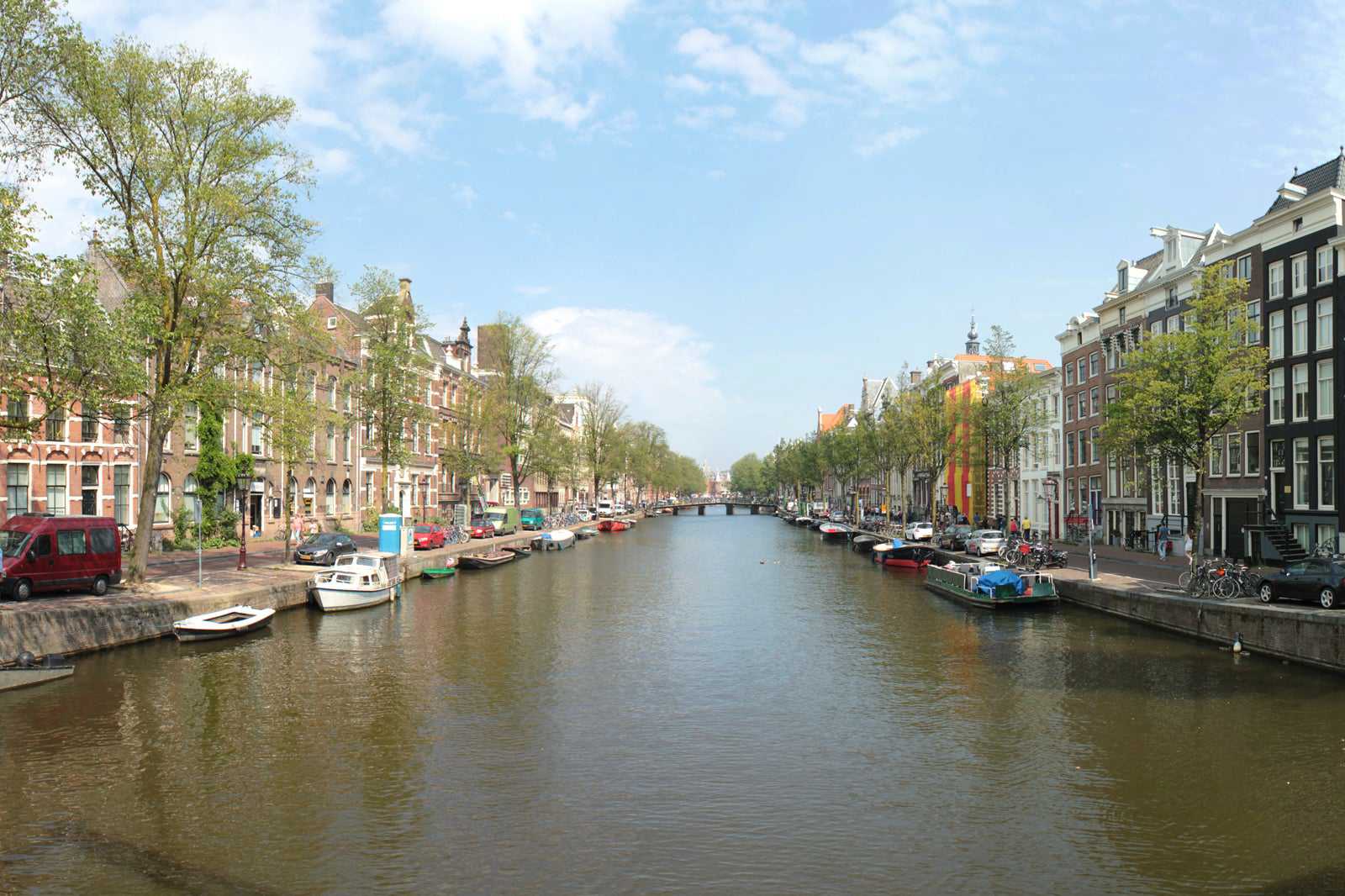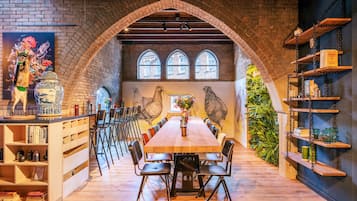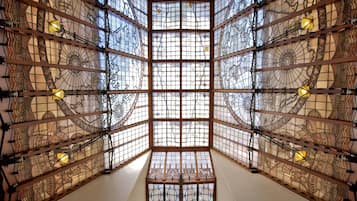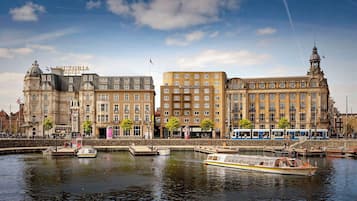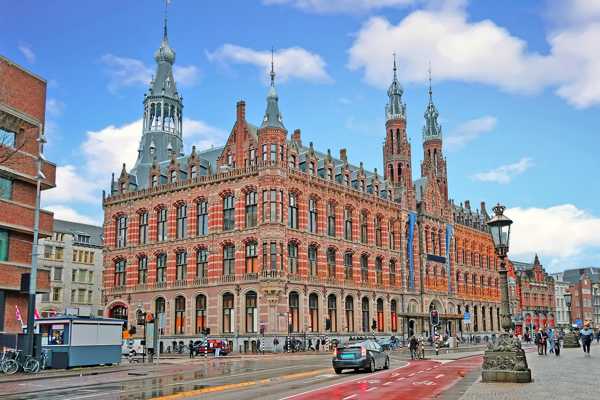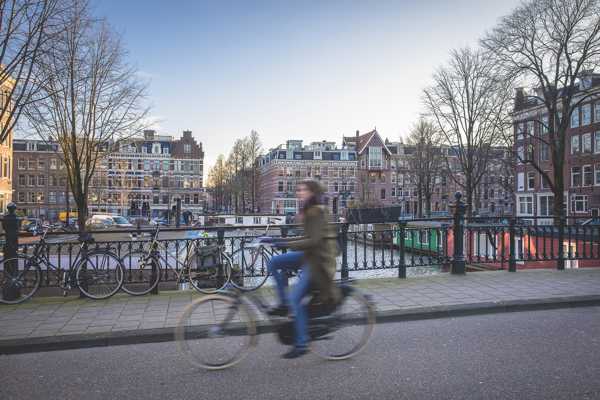Kloveniersburgwal is a historically prominent estuary in Amsterdam. If you’re touring the city centre, chances are that you’ll wander past the 550-metre-long waterway. Its story is deeply rooted in Amsterdam’s archives, making it an exciting location to visit. Klovenier is an old Dutch word for ‘marksman’ – both the canal and the aligning street were named after the city guards who gathered in this street.
A highlight of the Kloveniersburgwal is its many monumental buildings, ranging from former trading storehouses to majestic residences. Some of the striking structures along this trench include the palace-like mansion Trippenhuis and the 16th-century Bushuis, a bygone storehouse for weapons. All of the highlights of this iconic canal can be explored within 1 to 2 hours.
Despite its short length, the Kloveniersburgwal houses a collection of pubs and restaurants, excellent for a breaktime on your adventure.
Kloveniersburgwal in Amsterdam - one of the highlights of 10 Best Canals in Amsterdam (Read all about Amsterdam here)
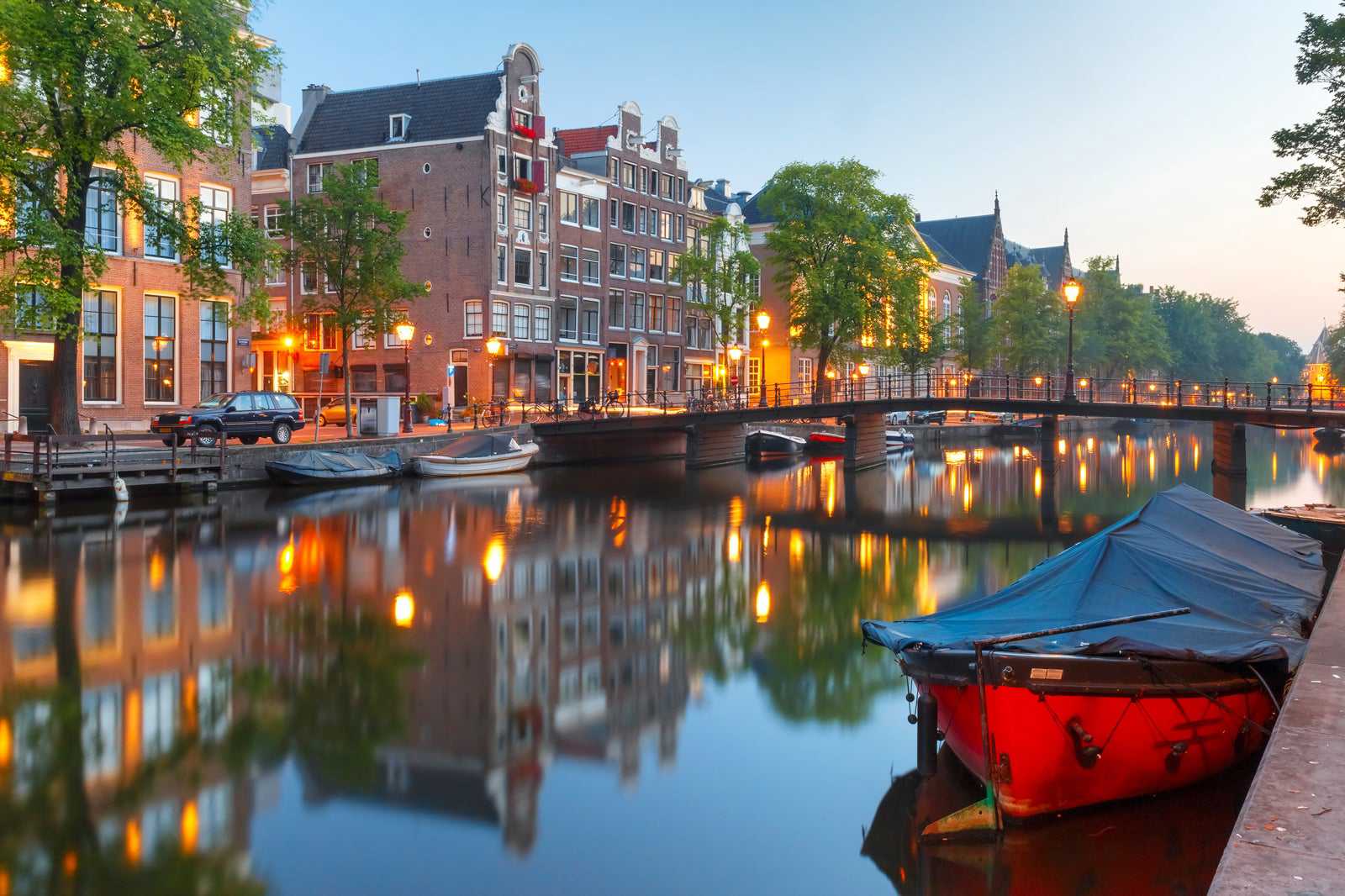
What are the highlights and features of the Kloveniersburgwal?
The urban landscape of the Kloveniersburgwal is dominated by late-medieval facades. In total, this street contains 82 national monuments listed as heritage sites.
One of these splendid fronts belongs to the Trippenhuis, a grand neoclassical residence built for the wealthy weapon-trading Louys brothers halfway through the 17th century. This notable dwelling is a stroll away from the Bushuis, a marvellous structure that occupies house Number 48.
The Bushuis has fantastic ornamental windows and pointy facades and was once used as a warehouse to store firearms and ammunition. Next door, the East Indies House was the first headquarters of the VOC, the trading company that sailed out to Indonesia during the Golden Age.
It’s recommended to dive into the alley called Oudemanhuispoort, an enchanting passageway that leads to an indoor book market. If you’ve built up an appetite, have a meal at the homely cafe at number 59, situated in a gorgeous 18th-century national heritage site.
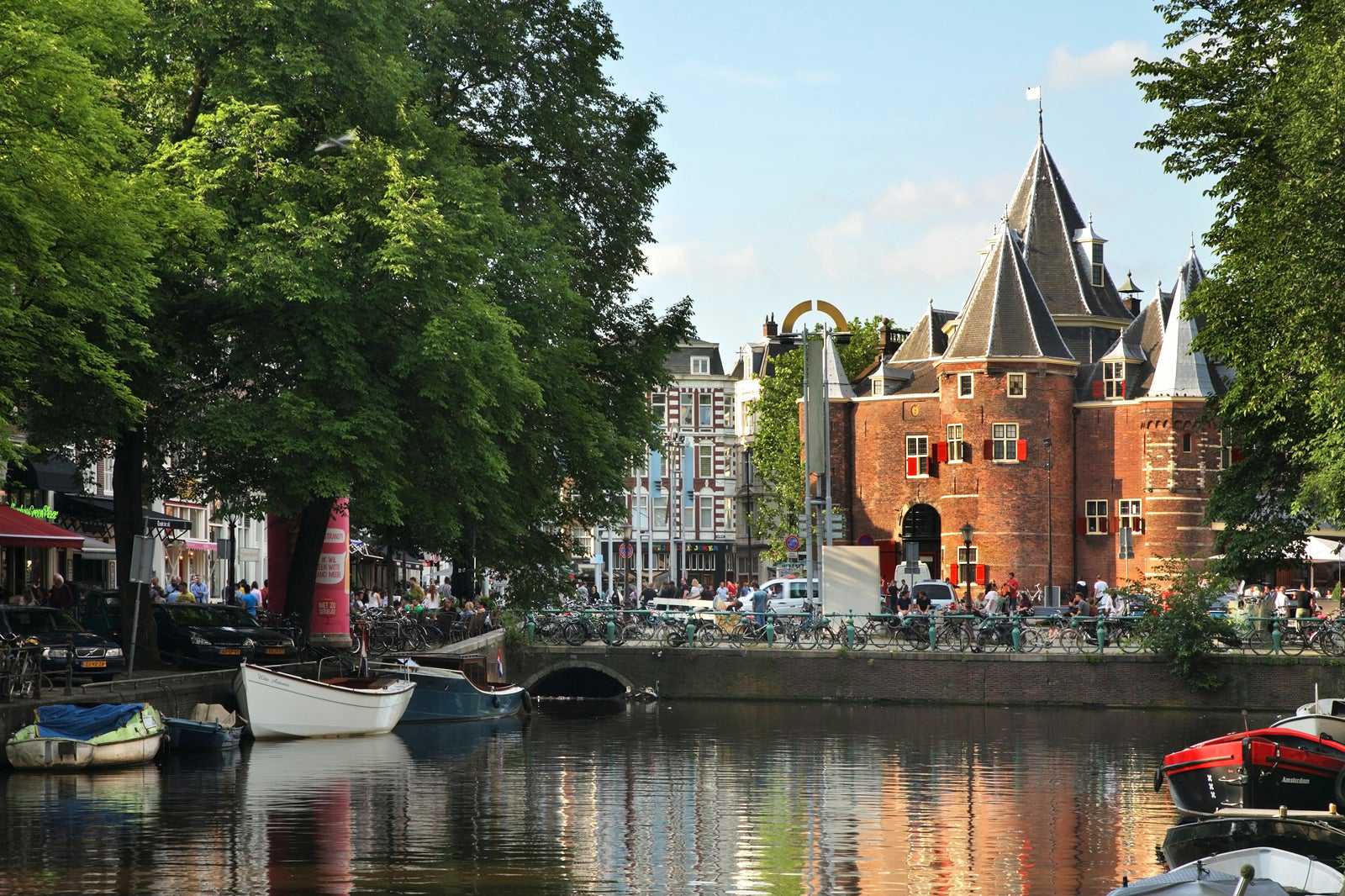
A brief history of the Kloveniersburgwal
Historical stories, ornamental homes, and characteristic bridges have transformed the Kloveniersburgwal into one of the most attractive canals in the inner city. Forming the city walls from the year 1480, the canal played a significant role in protecting Amsterdam.
Due to its function as a bastion around the city, the Kloveniersburgwal was primarily used to station guards (kloveniers), their training grounds, and to store weaponry in massive warehouses. Painter Rembrandt van Rijn was even assigned to portray the city guards in his world-famous work The Night Watch.
Later, some buildings along the canal functioned as the forerunners of retirement homes (Oudemanhuis or Old Men’s House), convents, and houses for the wealthy. In total, 3 bridges were laid over the water, of which the Aluminium Bridge is the most picturesque. In modern-day Amsterdam, numerous monuments along the Kloveniersburgwal are occupied by cosy cafes and university campuses.
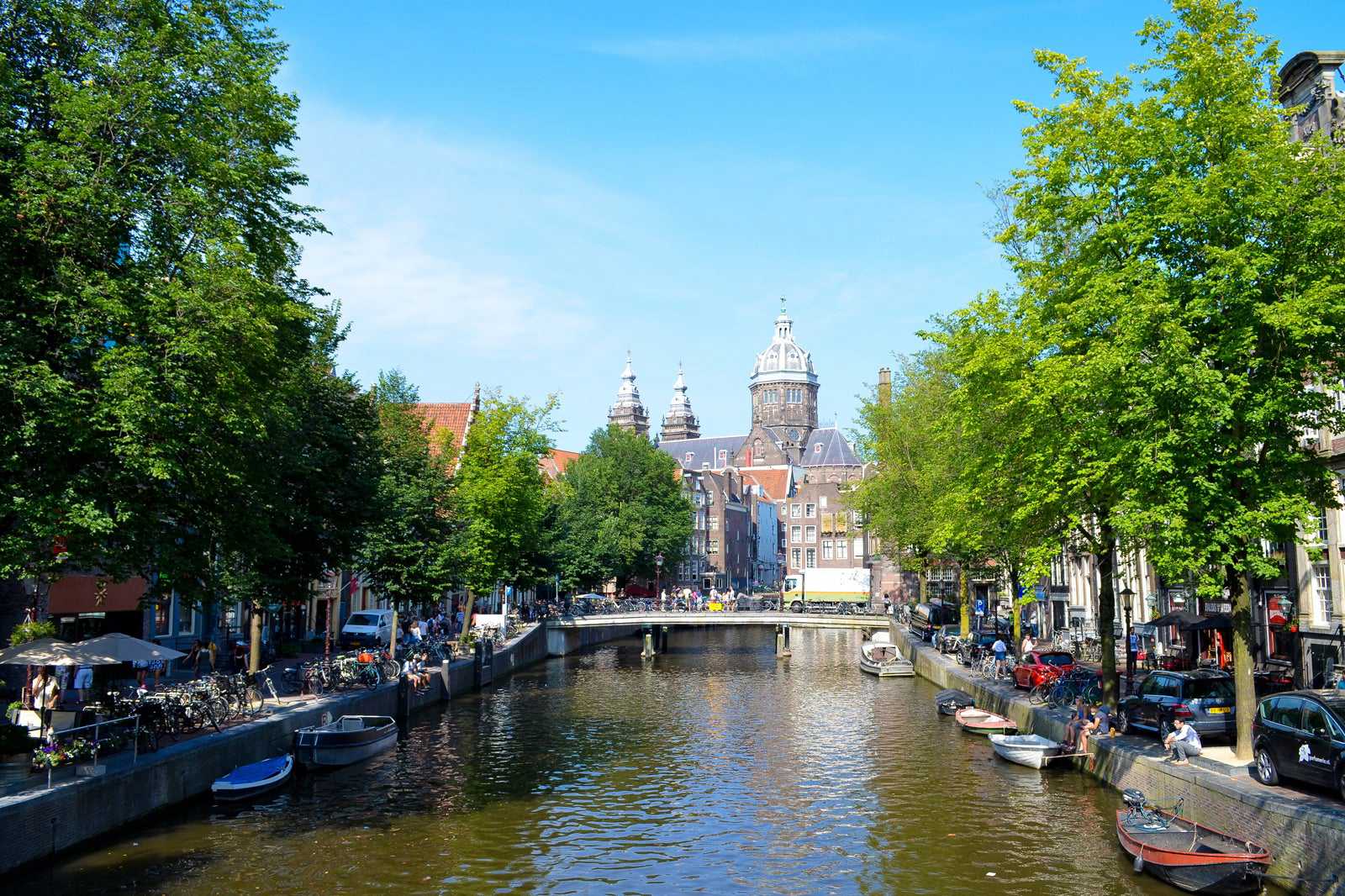
Good to know about the Kloveniersburgwal in Amsterdam
Not all of the glorious monuments on the Kloveniersburgwal were spared from destruction. The Swijgh Utrecht, once the most imposing of all city wall towers, was demolished in 1882. Today, it’s the site of a hotel.
If you’re into performing arts, the Kloveniersburgwal may feel like home to you. The Compagnietheater and Stichting Het Internationaal Danstheater host dance and music performances throughout the year. Interesting sights nearby include the 17th-century Zuiderkerk cathedral and the Rembrandt House Museum, where the acclaimed artist lived for 20 years.
At 550 metres, the Kloveniersburgwal is one of the shortest canals in the Dutch capital. It’s quite easy to walk from one end to the other. Parking spots are available next to the waterside, but these spaces are limited and have sky-high hourly rates. A one-way traffic policy applies in the Kloveniersburgwal.
